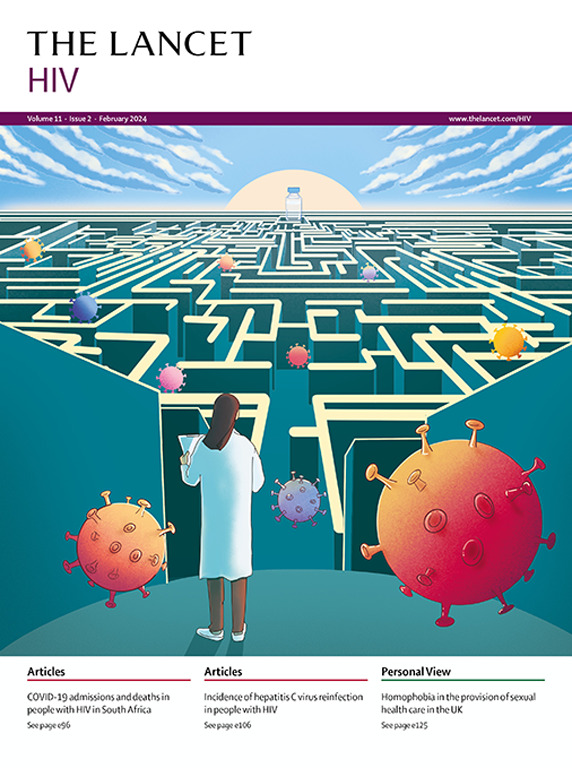无家可归和住房不安全对艾滋病毒的影响。
IF 13
1区 医学
Q1 IMMUNOLOGY
引用次数: 0
摘要
无家可归是一个全球性问题,有着广泛的原因和背景。无家可归和住房不稳定(HUH)的人受到艾滋病毒的影响不成比例,由于多重复杂的护理障碍,他们面临的治疗结果比拥有稳定住房的人更差。即使在全民健康覆盖的环境中,艾滋病毒预防和治疗服务仍然不足以满足艾滋病毒感染者的需求。卫生系统的障碍——例如难以驾驭、支离破碎的护理系统以及卫生保健机构面临的虐待——阻碍了这一人群参与艾滋病毒护理。量身定制的服务提供模式,包括低障碍护理、流动和街头护理,以及用于预防和治疗的长效抗逆转录病毒药物,有望解决这些障碍,并改善艾滋病毒感染者的艾滋病毒结局。未来的研究应优先考虑对差异化服务提供的高质量研究,在不同环境下优化针对这一人群的预防和护理规划的实施科学,以及扩大获得长效暴露前预防和抗逆转录病毒治疗的机会,特别是在低收入和中等收入国家。本文章由计算机程序翻译,如有差异,请以英文原文为准。
The impact of homelessness and housing insecurity on HIV.
Homelessness is a global problem with wide-ranging causes and contexts. People experiencing homelessness and unstable housing (HUH) are disproportionately affected by HIV and face worse treatment outcomes than those with stable housing due to multiple complex barriers to care. Even in settings with universal health coverage, access to HIV prevention and treatment services remains insufficient for people experiencing HUH. Health system barriers-such as difficult-to-navigate, fragmented care systems and the mistreatment faced in health-care settings-hinder the engagement of this population in HIV care. Tailored service delivery models, including low-barrier care, mobile and street-based care, and long-acting antiretroviral medications for prevention and treatment, show promise in addressing these barriers and improving HIV outcomes among people experiencing HUH. Future research should prioritise high-quality studies of differentiated service delivery, implementation science to optimise prevention and care programmes for this population in varied settings, and expanded access to long-acting pre-exposure prophylaxis and antiretroviral therapy, particularly in low-income and middle-income countries.
求助全文
通过发布文献求助,成功后即可免费获取论文全文。
去求助
来源期刊

Lancet Hiv
IMMUNOLOGYINFECTIOUS DISEASES&-INFECTIOUS DISEASES
CiteScore
19.90
自引率
4.30%
发文量
368
期刊介绍:
The Lancet HIV is an internationally trusted source of clinical, public health, and global health knowledge with an Impact Factor of 16.1. It is dedicated to publishing original research, evidence-based reviews, and insightful features that advocate for change in or illuminates HIV clinical practice. The journal aims to provide a holistic view of the pandemic, covering clinical, epidemiological, and operational disciplines. It publishes content on innovative treatments and the biological research behind them, novel methods of service delivery, and new approaches to confronting HIV/AIDS worldwide. The Lancet HIV publishes various types of content including articles, reviews, comments, correspondences, and viewpoints. It also publishes series that aim to shape and drive positive change in clinical practice and health policy in areas of need in HIV. The journal is indexed by several abstracting and indexing services, including Crossref, Embase, Essential Science Indicators, MEDLINE, PubMed, SCIE and Scopus.
 求助内容:
求助内容: 应助结果提醒方式:
应助结果提醒方式:


